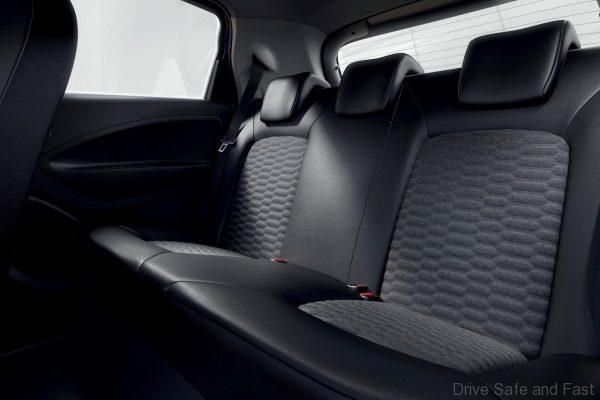The new Renault ZOE promises to be better in every way compared to the original. And now it looks like it’ll also be ‘greener’ than the previous car too, thanks to fully recycled textiles that are being used in the car.

The ZOE will feature these new unique textiles produced by Adient Fabrics. They’re made of old safety belts, textile scrap and polyester fibres derived from PET plastic bottles. Areas of the interior covered include:
- seat covers
- dashboard coverings
- gear lever brackets
- door fittings



Besides being made from recycled materials, the material also requires no chemical or thermal processes to be created. That means 60% fewer CO2 emissions associated with its production compared to standard fabrics used in the previous ZOE.

Here’s the press release with more information about these new textiles and the company that produces them.
PRESS RELEASE
Deeply committed to a strategy of increasing integration of recycled materials into its vehicles, Groupe Renault has initiated in 2015 a project called “àfiler” (“to thread”) alongside Filatures du Parc, a spinning mill in the Tarn region of France, and Adient Fabrics, an automotive seat supplier in Ariège, France, to design a unique textile product made exclusively from recycled materials.
Thanks to the traditional know-how of carded yarn and co-developed innovations, this textile product – made from safety belts, textile scrap from the automotive industry and polyester fibers from the recycling of plastic bottles (PET) – now covers the interior of the New Renault ZOE, in Zen and Intens finishes. The fabric covering a total area of 8 m² is used for the manufacture of seat covers, dashboard coverings, gear lever brackets and door fittings, and meets the high requirements for comfort, cleaning, UV resistance and durability.
The supply and short loop manufacturing of this recycled carded yarn – without chemical or thermal transformation – reduces associated CO2 emissions by more than 60% compared to the previous ZOE fabric from a standard manufacturing process.
Developed in the 15th century, the textile, clothing and leather industries are an integral part of the economic heritage of the Occitania region, France, particularly in Tarn and Ariège. In an extremely challenging context, the development of new textile products that are technical, sustainable and competitive is a real growth lever for the region’s players and an opportunity to position themselves on new markets, secure jobs and develop new skills.
In this perspective, the “àfiler” project received the support of the Ademe and the Occitania Region, as well as the support of ENSAIT (National High School of textile arts and industries) in Roubaix to consolidate the research and technical validation of this new textile product.
